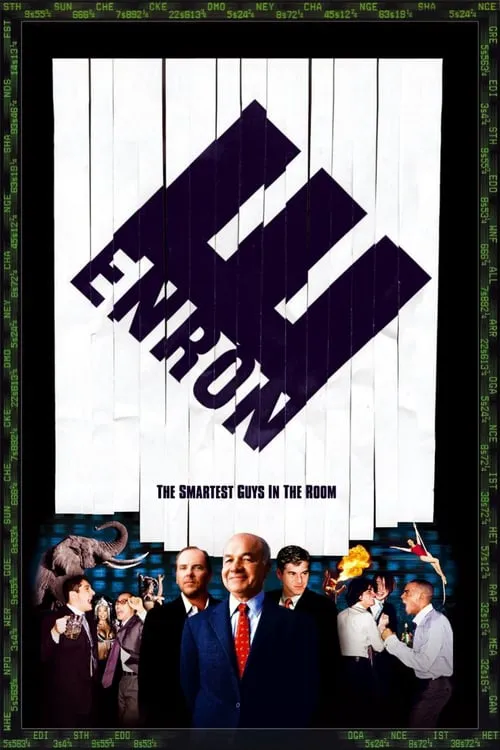Enron: The Smartest Guys in the Room

Plot
The once-mighty Enron Corporation was, in many ways, the perfect example of the "American Dream" turned nightmare. On the surface, Enron was a wildly successful company, with its stock price skyrocketing and its executives raking in millions. But beneath the shiny exterior, a culture of deception, corruption, and greed was brewing, which ultimately led to the company's downfall. Directed by Alex Gibney, "Enron: The Smartest Guys in the Room" is a documentary that delves into the history of Enron, its business practices, and the events that led to its collapse. The film is based on the bestselling book of the same name, written by Bethany McLean and Peter Elkind, and features interviews with numerous former Enron employees, as well as with financial experts and industry insiders. The documentary begins by tracing the origins of Enron, which was founded in 1985 by a group of oil and gas entrepreneurs, including Kenneth Lay, Jeffrey Skilling, and Andrew Fastow. Initially, the company was a small, struggling outfit, but under the guidance of Skilling, who was appointed CEO in 1997, Enron began to grow rapidly. Skilling and his team were masters of creative accounting, using complex financial instruments and loopholes to hide Enron's true financial performance. The company's executives were obsessed with meeting their quarterly earnings targets, and they used every trick in the book to cook the books and make their numbers look good. One of the key players in Enron's financial machinations was Andrew Fastow, the company's CFO. Fastow was responsible for creating a network of complex offshore entities, known as "special purpose entities" or "SPEs," which were used to hide Enron's debts and obligations. These SPEs were essentially shells, with no real assets or income, but they were used to report Enron's revenues and profits. As Enron's stock price soared, the company's executives became increasingly reckless in their financial dealings. They used Enron's money to buy and sell companies, and they engaged in a series of highly leveraged trades, using huge amounts of debt to finance their operations. The company's financial condition was a disaster, but its executives continued to report record profits and bonuses. The documentary also explores the role of Enron's auditors, Arthur Andersen, which was responsible for conducting the company's annual audits. Andersen's auditors were complicit in Enron's financial machinations, and they knowingly ignored or overlooked a range of red flags and warning signs. The film also touches on the role of the Wall Street analysts and journalists, who were either complicit in Enron's deception or failed to report the warning signs. Many of these analysts and reporters were friends with the Enron executives, and they received preferential treatment and inside information. As the documentary unfolds, the Enron executives become increasingly arrogant and reckless. Skilling and Fastow begin to use Enron's money to finance their own personal projects and lavish lifestyles. They spend millions on mansions, yachts, and art collections, while the company's employees are left to struggle with reduced benefits and stock options. The film's climax is reached when Enron's financial collapse becomes inevitable. In October 2001, the company announces a massive write-down, revealing a staggering $1 billion in losses. The revelation sends shockwaves through the financial markets, and Enron's stock price plunges. In the aftermath of the collapse, Skilling and Fastow are arrested, charged with conspiracy, securities fraud, and tax evasion. Lay, who had retired as CEO in 2001, is also charged. The documentary ends with a series of haunting interviews with Enron employees, who are left to pick up the pieces and wonder how they were so blind to the company's deception. "Enron: The Smartest Guys in the Room" is a damning indictment of Enron's corrupt business practices, as well as the regulatory failures and complacency that enabled the company's downfall. The film is a cautionary tale about the dangers of greed and the importance of honest accounting and governance. It is a fascinating and disturbing expose of one of the biggest financial scandals in history, and a reminder that, even in the face of corruption and deception, the truth will eventually come to light.
Reviews
Recommendations




